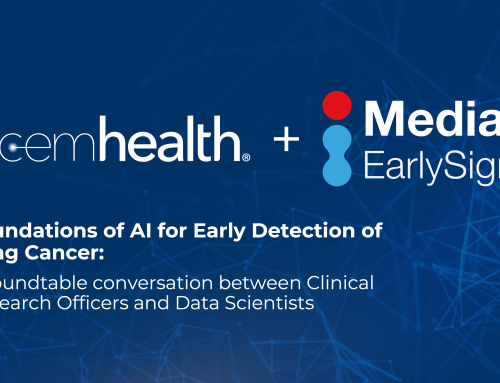This Week in Clinical AI, Episode 5 (8/28/23)
In This Week in Clinical AI episode 5, we discuss: using AI to predict certain types of cancer, discussions about regulating AI, and how we can use brainwaves to recreate Pink Floyd songs.
This Week in Clinical AI Episode 5 Topics:
- 0:00 Introduction
- 0:29 Topic 1: AI can predict certain forms of esophageal and stomach cancer
- 1:41 Topic 2: Can 70+ year old Senators figure out how to regulate AI?
- 2:13 Topic 3: A Pink Floyd song made with AI and brain scans sounds a lot like the band
Predicting Esophageal and Stomach Cancer with AI
A groundbreaking study in Gastroenterology provides evidence of AI predicting esophageal and stomach cancer onset. This research explores the potential of machine learning algorithms. They can analyze simple EHR data to identify early patterns of these dreaded diseases.
The incidence levels of esophageal and stomach cancer have been steadily rising, causing concern among medical professionals. However, by leveraging the power of AI and the insights hidden within EHR data, it becomes possible to detect signs and symptoms of these diseases at an earlier stage, potentially saving lives.
The utilization of AI models to analyze EHR data is increasingly proving to be a valuable tool in predicting the onset of various diseases. The ability to identify patterns and risk factors promptly allows for more proactive and targeted interventions, leading to improved patient outcomes. [1]
Regulating AI: Balancing Safety and Innovation
In a thought-provoking column titled “The Upshot,” The New York Times prompts us to contemplate the regulation of AI by examining past attempts to regulate new technologies. When it comes to the latest technological advancements, such as AI, concerns regarding safety, ethics, and validity inevitably arise, necessitating an informed discussion on regulation.
Regulating AI is complex and multifaceted. However, it is important for maintaining balance between innovation and safeguarding society’s interests. Exploring effective governance of AI’s development and use can ensure it remains trusted. This allows it to underpin reliable, ethical decision-making.. [2]
Unleashing the Power of AI in Music: Pink Floyd Song Recreated from Brainwaves
In an astounding showcase of AI’s potential, researchers at UC Berkeley conducted an experiment involving the iconic Pink Floyd song, “Another Brick in the Wall.” Researchers hooked up patients to devices that recorded their brain activity while the patients listened to the song.
The collected brainwave data was fed into a machine learning algorithm. This algorithm ingeniously reconstructed the song based solely on the recorded brainwaves. This breakthrough demonstrates AI’s ability to decipher and interpret brain activity. It offers glimpses into a future where machines could literally find you a song that you are just thinking about. [3]
This Week in Clinical AI Episode 5 Wrap-Up
In conclusion, the world of clinical AI is bursting with incredible advancements and possibilities. From predicting cancer through the analysis of electronic health records to reconstructing music based on brainwave data, AI is revolutionizing the way we understand and interact with healthcare and music.
However, with these exciting advancements comes responsibility. We must navigate the ethical, regulatory, and privacy implications of using AI. To ensure these technologies better society, policymakers, healthcare providers, researchers, and the public must collaborate.
As we look ahead, the transformative nature of AI offers countless opportunities to enhance patient care, disease detection, and scientific discoveries. By harnessing its power responsibly, we can continue to unlock the true potential of artificial intelligence in healthcare and beyond.
Stay tuned for next week’s episode!
